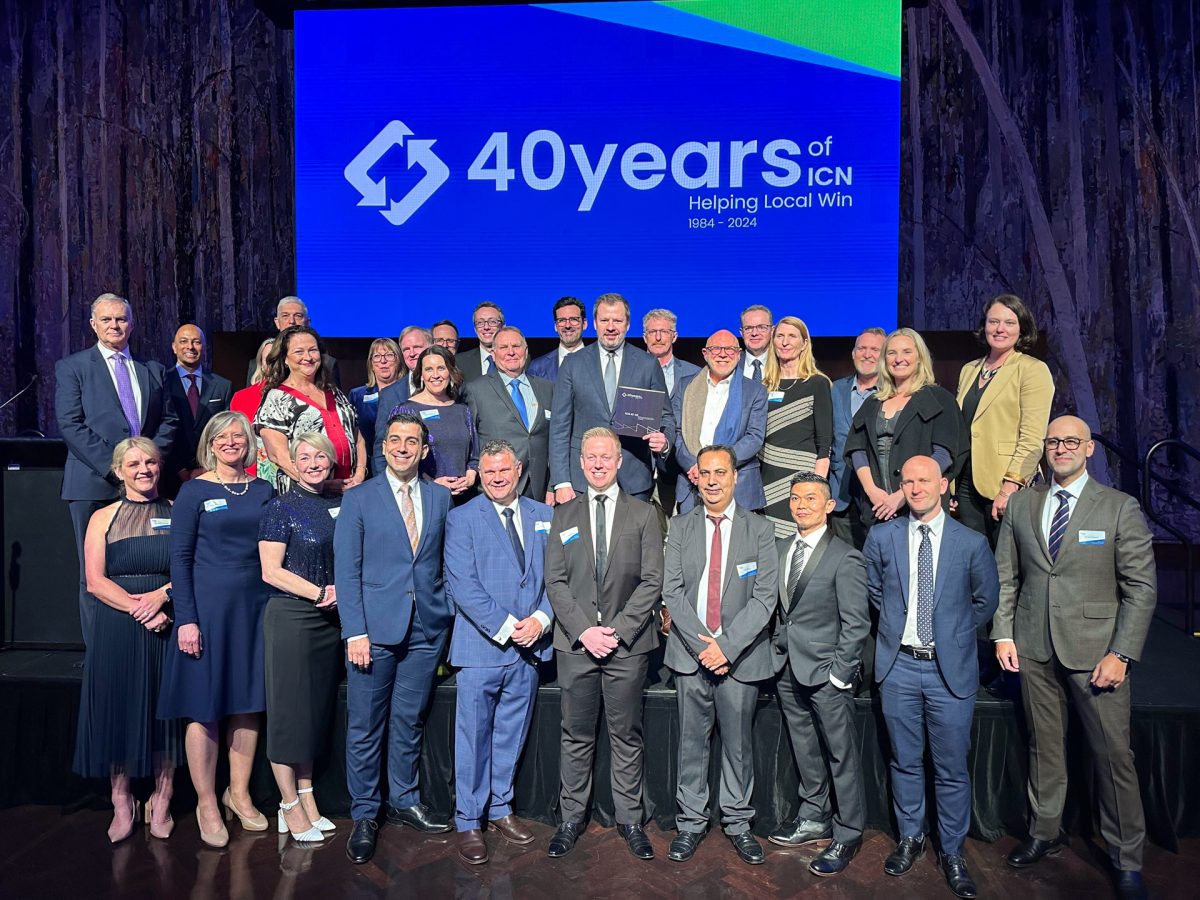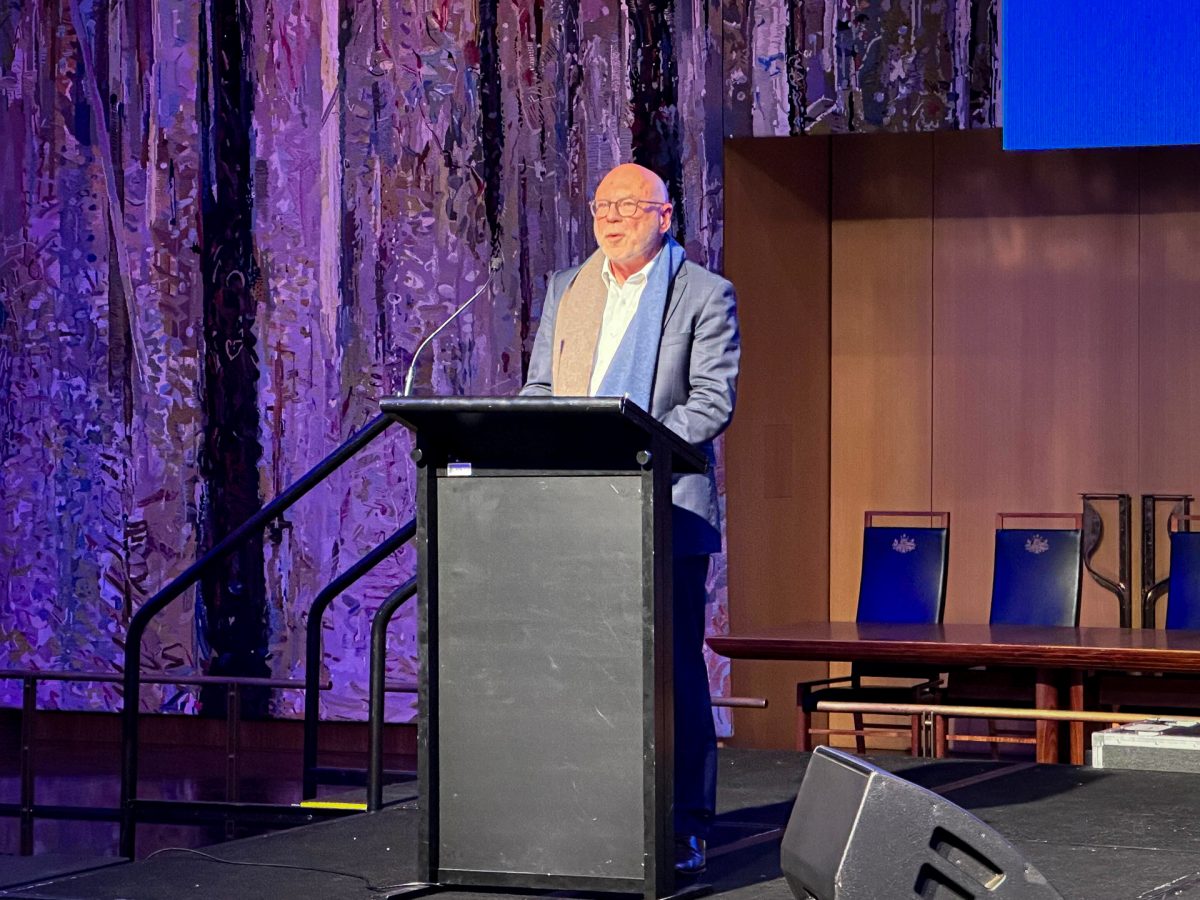
Minister for Industry and Science Hon Ed Husic MP (centre) spoke at the Industry Capability Network’s 40th birthday celebrations at Parliament House. Photos: Shayna Siakimotu.
You don’t get to stay around for four decades as an industry association group of any kind unless you’re very good at what you do.
When you’re a network of procurement and supply chain specialists providing a link between business, industry and government for projects of all sizes across the country, it’s an even tougher task to stay relevant.
This year, the Industry Capability Network (ICN) marks its 40th anniversary, so it must be doing something right.
The Federal Government took the time out to acknowledge the achievement last night (14 August) at a gala event in the Great Hall of Parliament House. There was even a Lego Masters build-off there to entertain.
An impressive cross-section of MPs, senators, diplomats and industry chiefs comprised the 400-plus guests who gathered to mark the occasion and acknowledge the important part ICN plays in keeping Australian SMEs in the game when it comes to securing contracts in an internationally competitive realm.
Industry and Science Minister Ed Husic launched the ICN’s Green Report by University of Technology Sydney Emeritus Professor Roy Green, which provides a thorough review of the network’s achievements and continuing purpose.
Mr Husic, who wrote the foreword to the report, praised the ICN’s role in keeping homegrown industry at the forefront of government decision-making during the whole procurement process.
“Building our industrial muscle means more secure, well-paid Australian jobs,” Mr Husic said.
“Strong manufacturing enables our transition to net zero and leverages our abundant resources, from minerals to renewables, and it hardens our economic and national security resilience by reducing our reliance on foreign supply chains.
“Procurement has a vital role to play in our approach. We know that by maximising opportunities for local businesses to participate in major projects, we can boost our capabilities and make sure we make what we need right here at home.”
Mr Husic said the Industry Capability Network was key to achieving that goal.
“The world is changing fast, but for four decades, ICN has been an important hand on the shoulder of Australian businesses,” he said.
“As an intermediary between local suppliers and purchasers, it has helped them demonstrate their capability to grow and to innovate and to win more work. I commend them on their 40th anniversary.”
ICN began life in 1984 as the Industrial Supplies Office in Victoria and became the cornerstone in promoting fair competition and championing the growth of local industries across Australia and New Zealand.
It is funded by company members and subscribers, including Australia’s federal, state and territory governments.
Despite the challenges of funding constraints and various government policy changes over the years, ICN continued to thrive, facilitating contracts worth more than $50 billion for local suppliers and creating thousands of jobs.
The network insists that the key to its intermediary role is its engagement in all levels of government procurement programs that require public and private sector project proponents of projects above a threshold value to provide full, fair and reasonable bidding opportunities to local firms.
Professor Green, who is UTS’s special innovation advisor, said such engagement has, from the beginning, been crucial to ICN facilitating the development of supply chains and delivering its services.
“Arguably, the most remarkable aspect of ICN is its very survival,” he said.
“ICN stands virtually alone in Australia’s barren industry policy landscape in continuing, more or less intact through four decades of changing governments, shifting public sector budgetary priorities and large swings in dominant economic ideas.
“It has not only survived but thrived.
“It took a little over a decade, from 1984 to 1996, for the organisation to accumulate $1.4 billion in contract ‘wins’ for local firms.
“By April 2024, this had risen by an additional $52 billion. After discounting for inflation, this is a cumulative $25.3 billion in 1996 dollars.
“In real dollar terms, this is an extraordinary compound rate of growth since 1996 of 11.2 per cent per annum.”

Emeritus Professor Roy Green AM author of The Green Report: ICN Past Present and Future.
Facing the next 40 years, however, the Green Report proposes significant changes to the procurement process, including a return to the Supplier Access to Major Projects (SAMP) program, which ICN says was extremely successful.
“Consideration should be given to introducing a mandatory minimum proportion of local content and/or SME share of total expenditure, as for example, occurs in the US and other nations,” the report states, although it cautions that such a move should be subject to careful scrutiny before introduction.
“State procurement programs across jurisdictions differ substantially in the threshold value of projects subject to the program and role ascribed to ICN. These large differences impose costs on firms bidding for projects across states as they need to incorporate these differences into their bidding processes and contract systems.
“Further, given that projects can sometimes be funded by both state and federal governments, firms can ‘arbitrage’ across jurisdictions to select a program with the least onerous requirements.
“Accordingly, it is recommended procurement programs should be recommended procurement programs should be harmonised across all jurisdictions.
“The SAMP program should be reinstated. This ran for 17 years to 2014 and provided full-time dedicated ICN officers on placement inside major project proponents and tier one suppliers to lift local participation.”


















